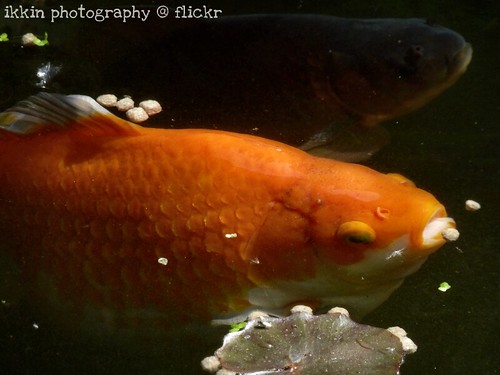
Ever wondered about the secret to keeping your goldfish not just alive, but thriving? It’s simpler than you might think: it's all about timing and balance with their feeding. Let’s dive into the details so your goldfish can have the best feeding experience.
When to Serve Up Their Meals
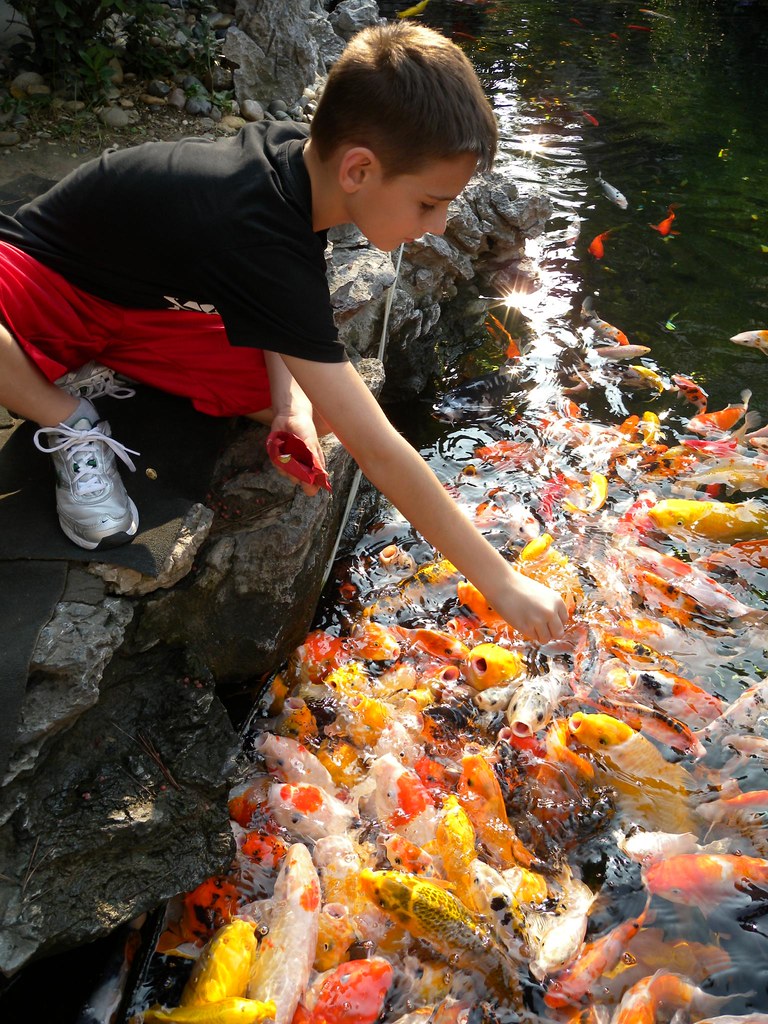
Goldfish, like clockwork, benefit from a consistent feeding schedule. Early morning and evening are ideal as these times mimic their natural feeding behavior in the wild. Most goldfish owners feed their finned friends once or twice a day. If you're wondering when exactly is the best time to feed your goldfish, studies suggest they respond best to regular schedules during low light conditions—a pattern that aligns well with dawn and dusk. Sticking to this routine, your goldfish will learn to anticipate meal times, swimming eagerly to greet you.
Setting the Table: What and How Much to Feed
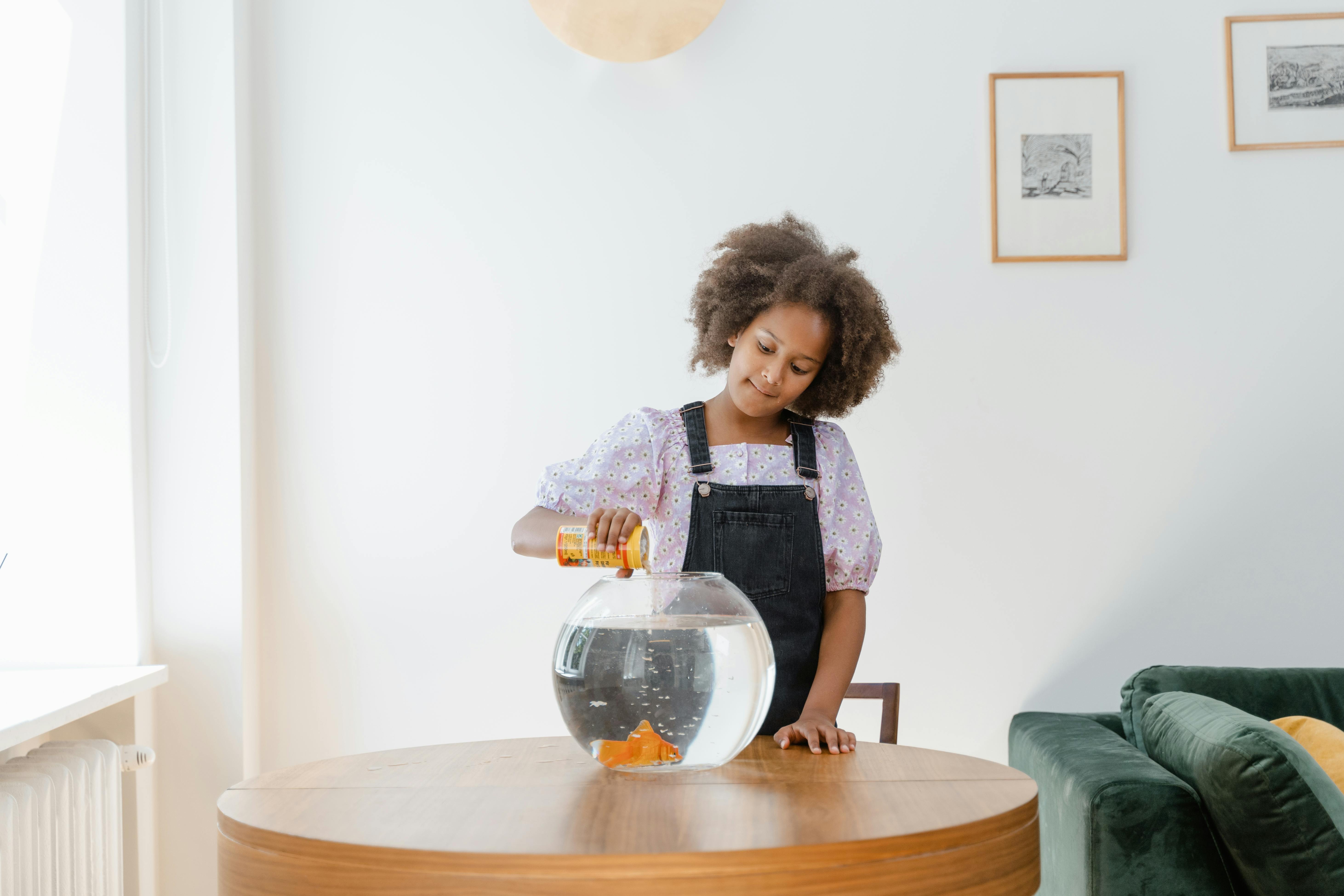
Understanding the portion sizes and types of food is crucial. The golden rule? Serve up only as much as they can gobble down in two minutes. Watch out for excessive leftovers, as these spoil water quality. Adult goldfish generally need two meals whereas younger ones might require smaller, more frequent feeds. Here's a handy feeding guide:

| Fish Age | Feeding Frequency | Food Types |
|---|---|---|
| Juvenile | 3 times a day | Sinking pellets, defrosted bloodworms |
| Adult | Twice a day | Algae wafers, peas, sinking pellets |
Variety Is the Spice of Life
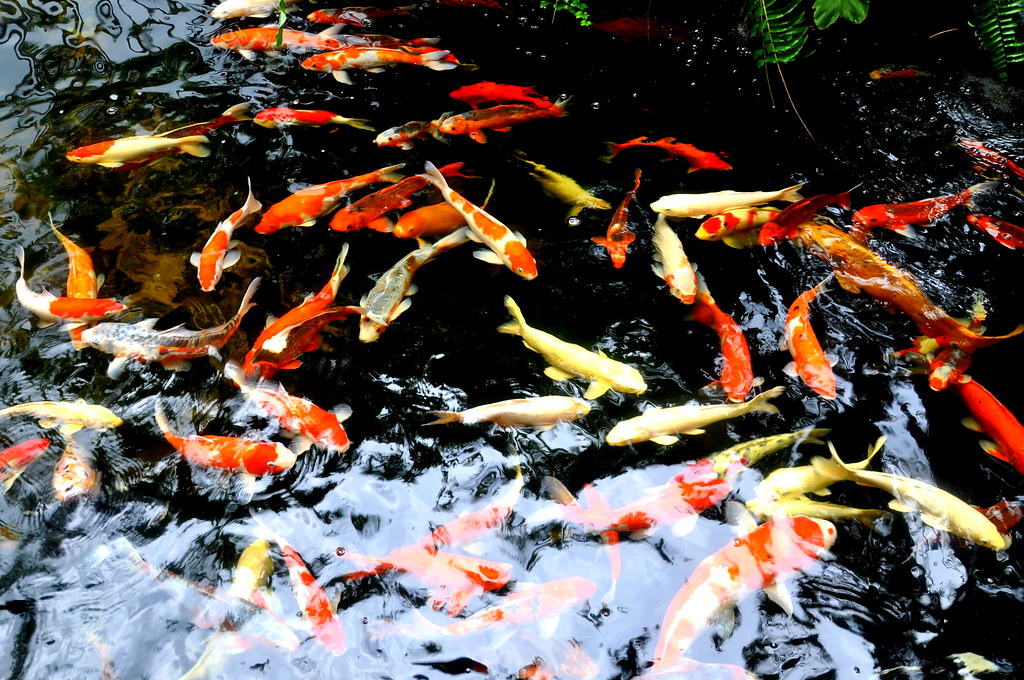
Goldfish are renowned for their robust appetites, but what they eat matters just as much as when. A varied diet keeps them vibrant and healthy. Opt for a mix: think sinking pellets for fancy goldfish (preventing buoyancy issues), delicious defrosted bloodworms, and nutritious veggies like spinach and peas. This not only satisfies their dietary needs but also keeps things interesting.
Keeping an Eye on Health
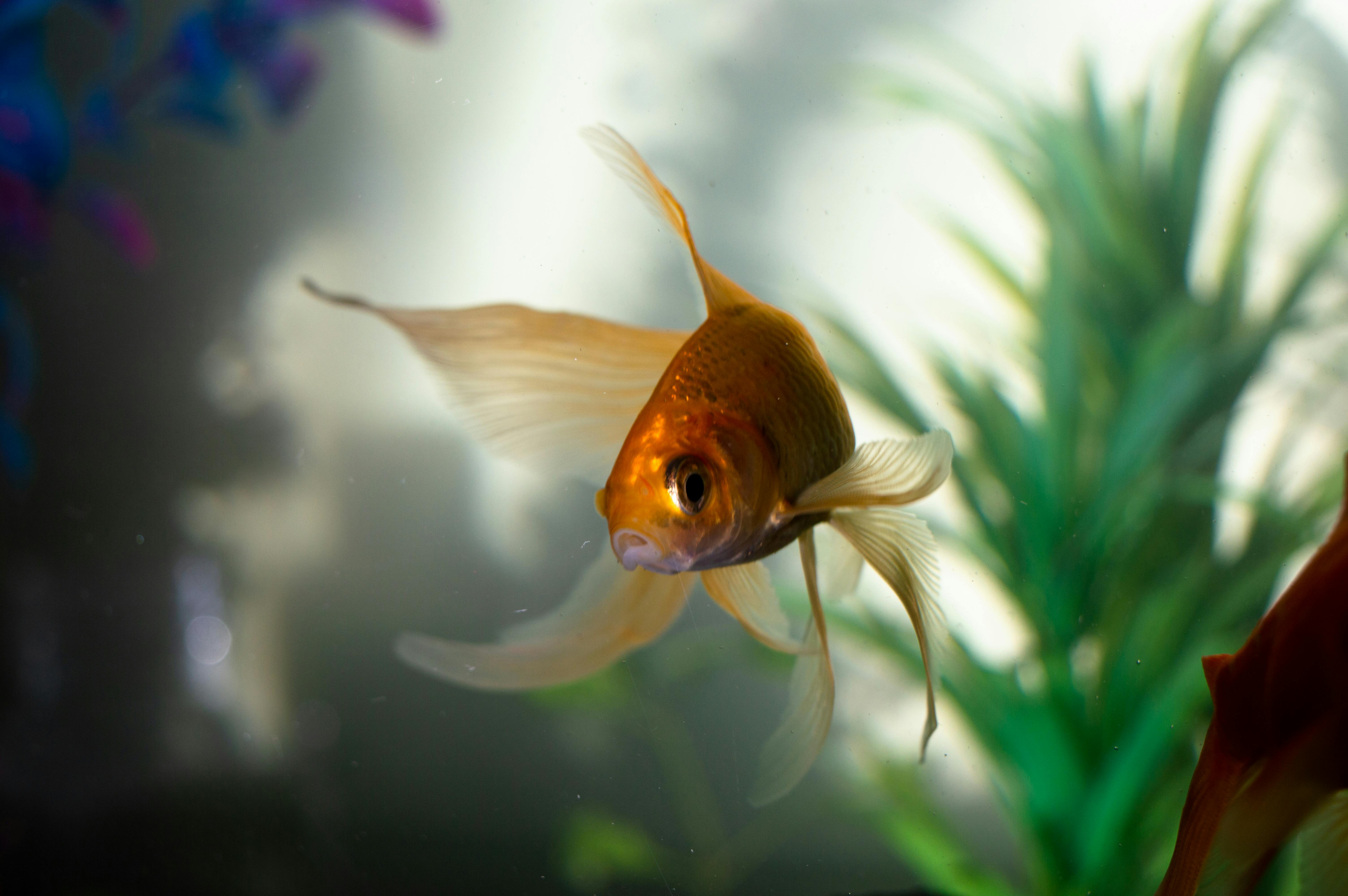
It’s not all about the quantity; quality counts too. Monitor your aquarium to prevent overfeeding. Look for cloudy water, a foul smell, and an uptick in algae growth—these are screaming signs of overfeeding. Within the fish, look for white, stringy poop or excessive aggression as indicators of dietary distress.
Environmental Considerations
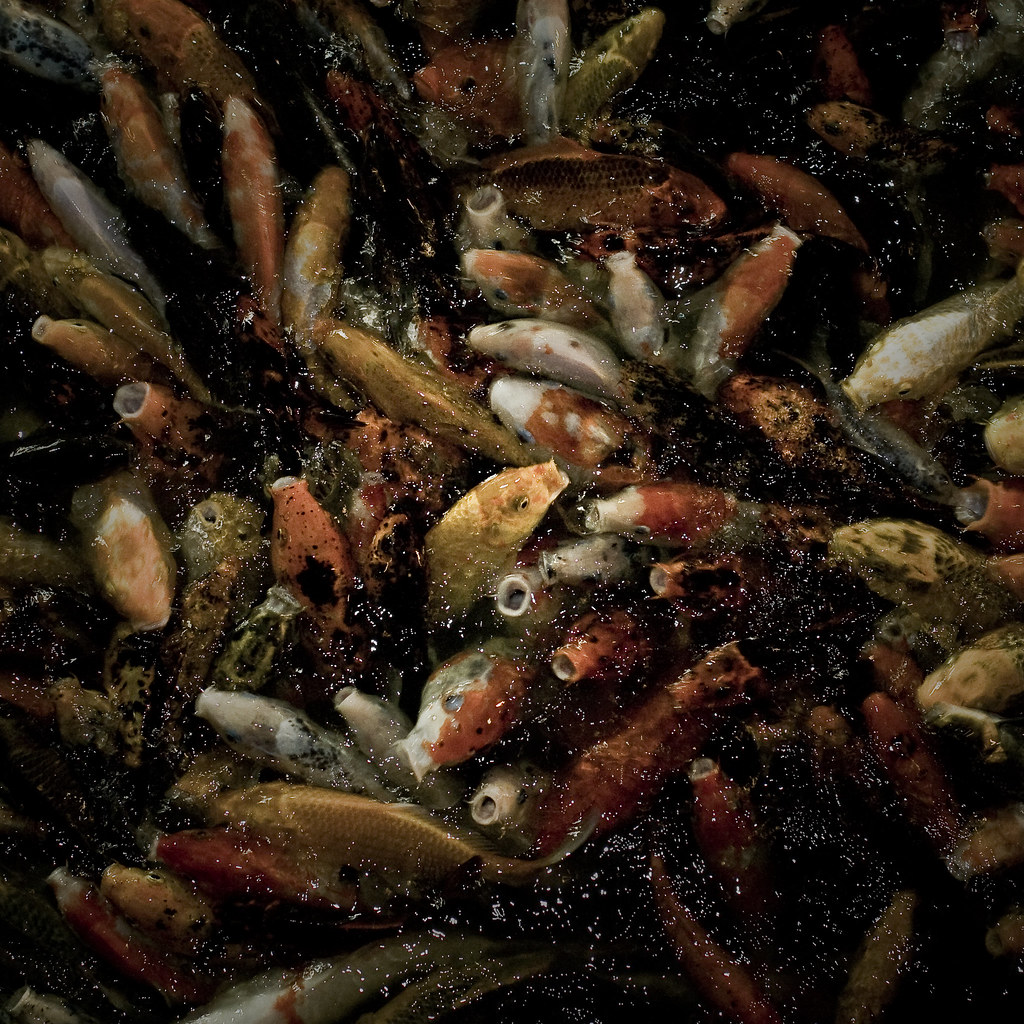
Besides keenly observing their feeding, remember that the tank environment plays a role. Ensure you maintain good water quality to handle more generous feedings without harm when water quality is adequately monitored.
Engage with Their Natural Behaviors
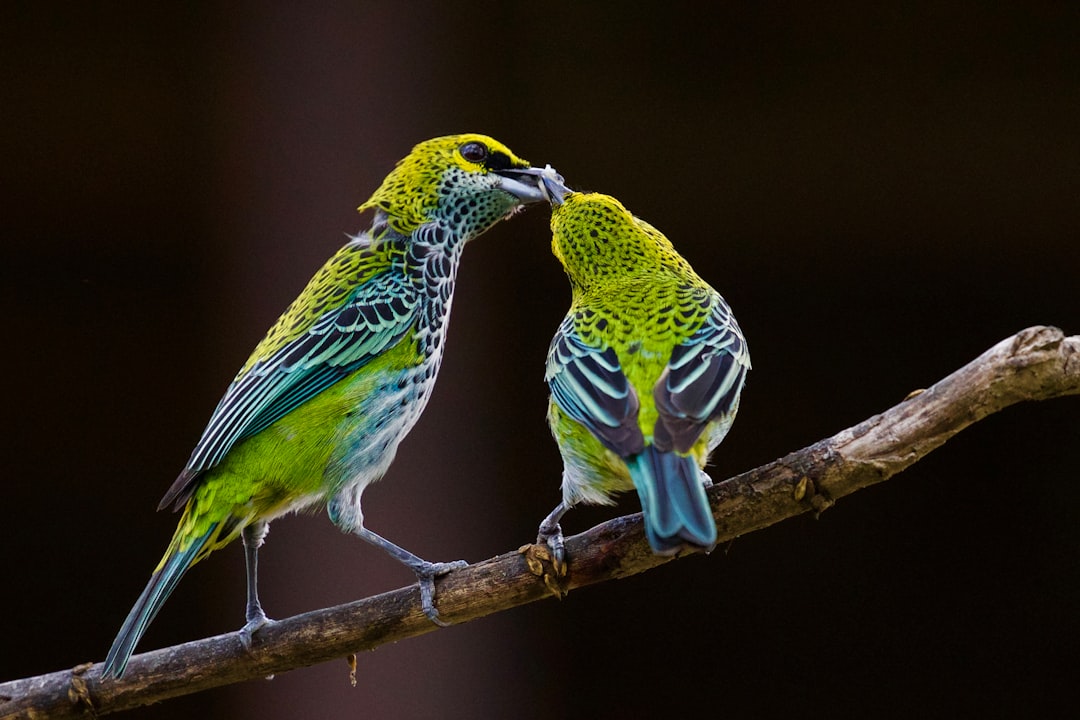
Goldfish also have natural foraging instincts. Spreading food around the tank will encourage these behaviors and discourage rapid consumption, allowing them to eat at a natural pace and improve digestion.
So, the next time you sprinkle those colorful flakes, remember it’s not just about filling their bellies but nurturing a happy, healthy life. Now, I’d love to hear from you—what have you discovered about feeding your own goldfish? Share your thoughts or your favorite feeding tips in the comments!
API Goldfish Pellets Fish Food, 4 oz.
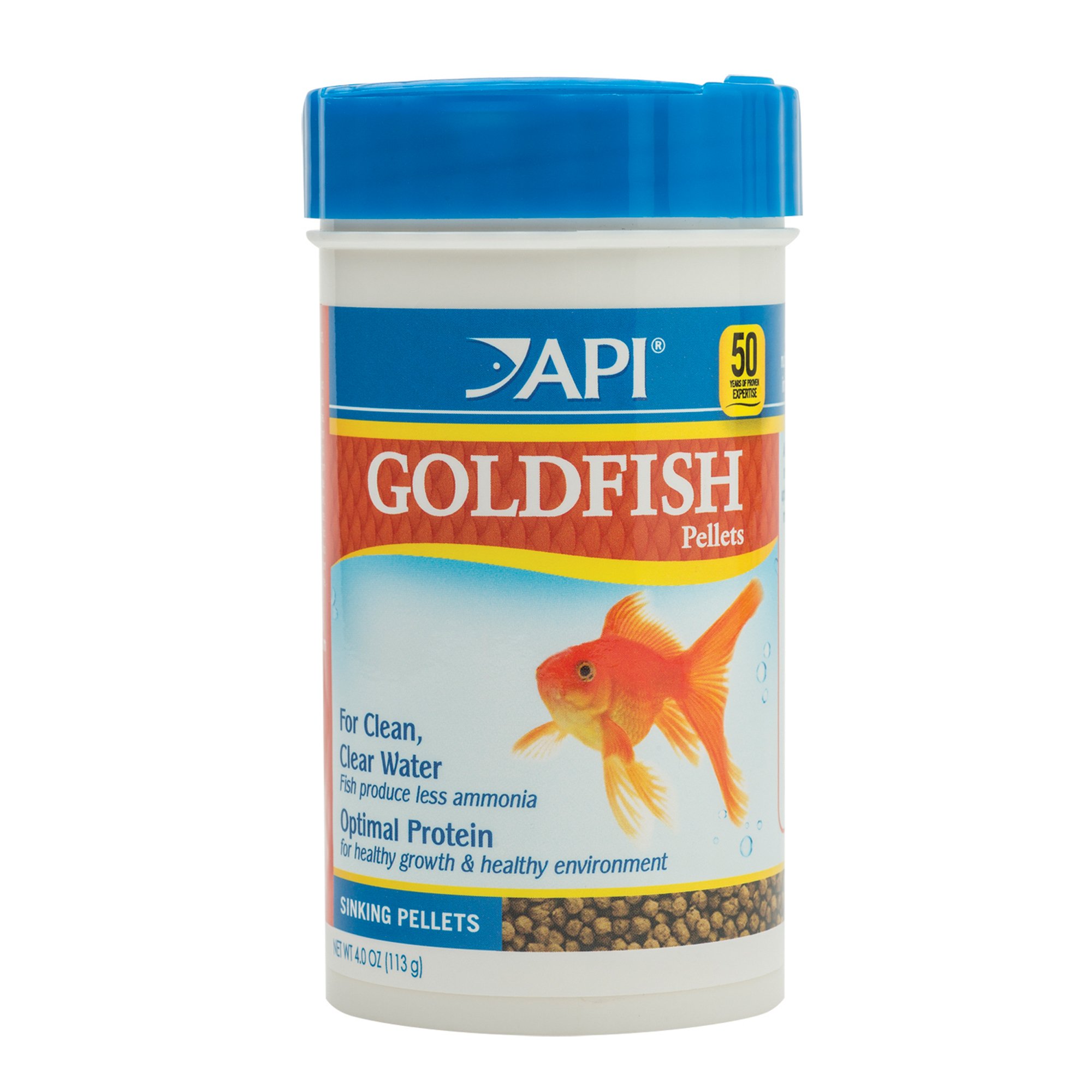
Nourish your goldfish with API Goldfish Pellets, designed for optimal health and vitality. These sinking pellets reduce ammonia production for cleaner water and are packed with high-quality protein to support growth. Ideal for everyday feeding, they promote a vibrant, thriving aquatic environment. Treat your goldfish to a nutritious meal that helps them flourish while maintaining crystal-clear water in your aquarium. Perfect for goldfish enthusiasts seeking quality and convenience.
Hikari Mini Algae Wafers for Herbivore Fish, 3oz

Hikari Mini Algae Wafers are specially formulated for herbivorous fish, delivering a perfect balance of vegetables and proteins. These sinking wafers provide a nutritious, flavorful meal that smaller species crave. Ideal for maintaining vibrant colors, each wafer contains pure-cultured spirulina. Give your aquatic pets the world’s leading algae wafer formula, promoting healthy growth and vitality in every bite.
Amzey Freeze Dried Bloodworms Fish Food, 0.5 oz (14g) - 100% Natural
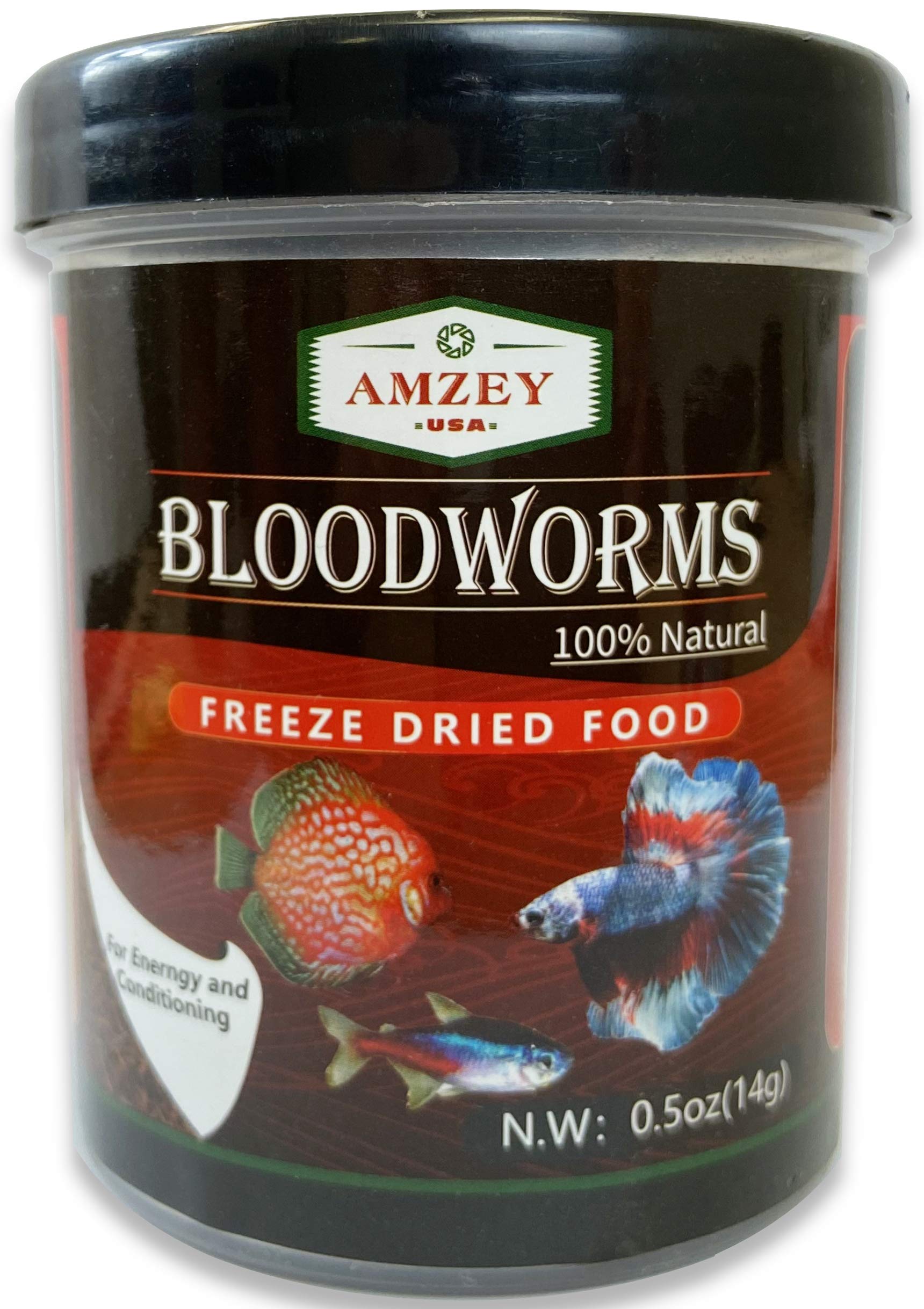
Delight your aquatic pets with Amzey's Freeze Dried Bloodworms, a nutritious treat ideal for energy and conditioning. Perfect for freshwater and saltwater fish, these 100% natural bloodworms are preserved to lock in flavor and nutrients. Conveniently packaged in a 0.5 oz container, they provide a delicious protein boost to keep your fish vibrant and healthy. Easy to store and feed, they make a wholesome addition to your pet's diet.
Smart Fish Feeder with Night Vision Camera and Wi-Fi Connectivity
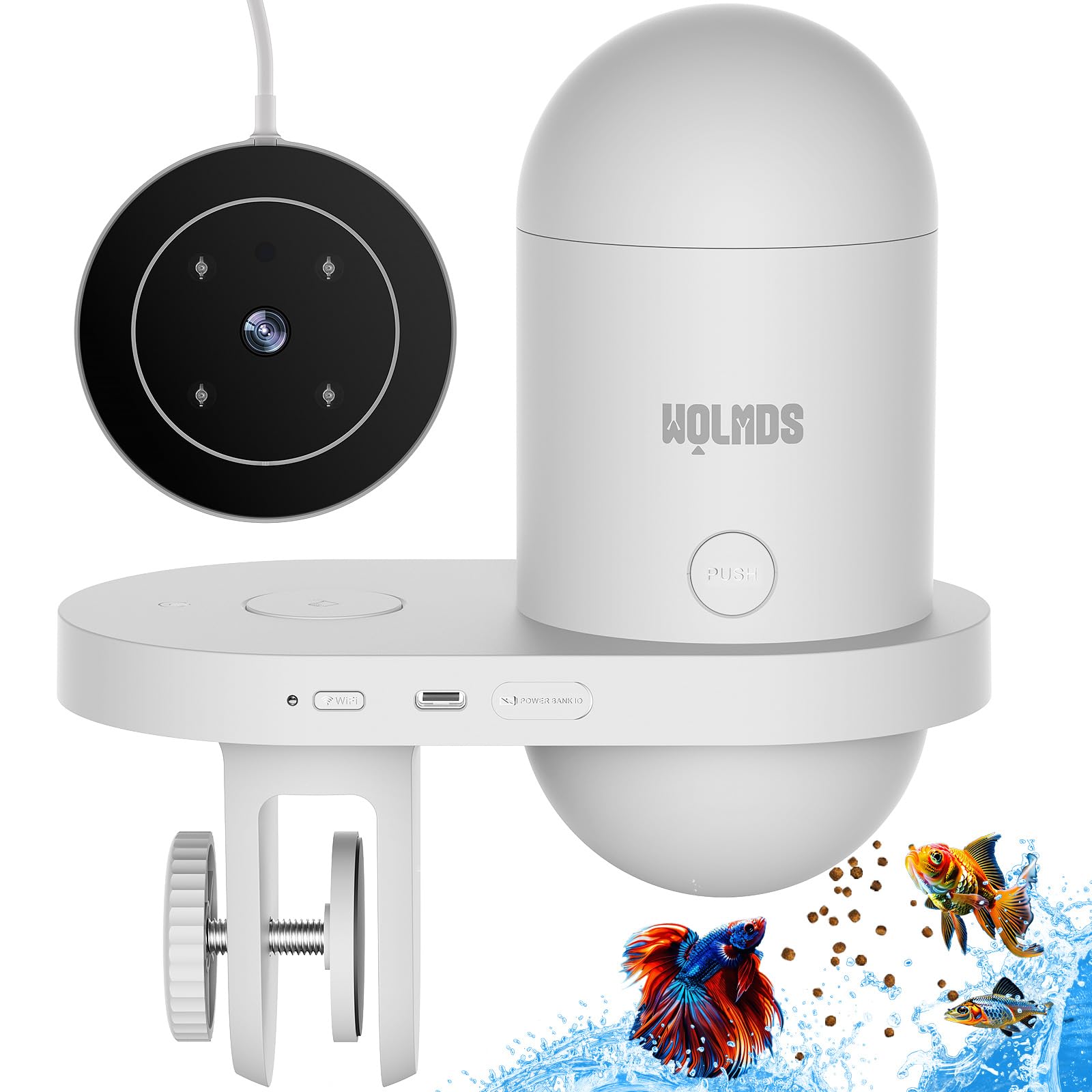
Ensure your fish are fed on time with the Smart Fish Feeder with Night Vision Camera. This innovative device allows you to schedule feedings remotely via Wi-Fi, while monitoring your aquatic pets through the integrated night vision camera. Easy to install, it features an adjustable clamp and USB charging. Keep an eye on your fish day or night, and enjoy peace of mind with this modern aquarium solution.
Frequently Asked Questions
Is it better to feed goldfish in the morning or night?
Goldfish thrive when they are fed both in the morning and at night. They benefit from smaller meals spread out across the day, such as dried food in the morning and fresh or frozen food in the evening. This ensures they maintain a healthy diet and are less prone to overeating.
How often should I feed my goldfish?
The frequency of feeding goldfish depends on water temperature. Feed them once daily when water is 60-70°F (15-21°C) and twice daily when it's 70-75°F (21-24°C). Reduce it to once weekly when the temperature is below 50°F (10°C) to align with their slowed metabolism.
How much food should I give my goldfish at one time?
Goldfish should be fed a portion they can consume within 2-3 minutes. Overfeeding can lead to digestive issues and poor water quality. Providing small, manageable amounts of food ensures they eat efficiently without waste.
What is the best type of food for goldfish?
Goldfish can eat flakes, pellets, fresh vegetables, and even live or frozen foods like brine shrimp. A varied diet ensures they get all the necessary nutrients. Avoid foods high in fat or fillers, as these can affect their health negatively.
Can I overfeed goldfish?
Yes, overfeeding is a common issue among goldfish owners. Excess food can lead to digestive problems and pollute the tank water, affecting the health of your fish. Stick to feeding portions they can finish in a couple of minutes to avoid overfeeding.
With all this newfound knowledge on feeding your goldfish, you're well on your way to becoming a top-notch fish caretaker! If you've got any quirky feeding stories or if you capture your fishy friends in action, we’d love for you to share them with us. Dive deeper into the world of aquatic adventures by following us over on Pinterest for all things fishy, or hop over to our Instagram where architecture meets aquatic fun. We're also chatting all things pet fish on X (formerly Twitter) and would love for you to join our Facebook community. Let's keep the conversation swimming!
